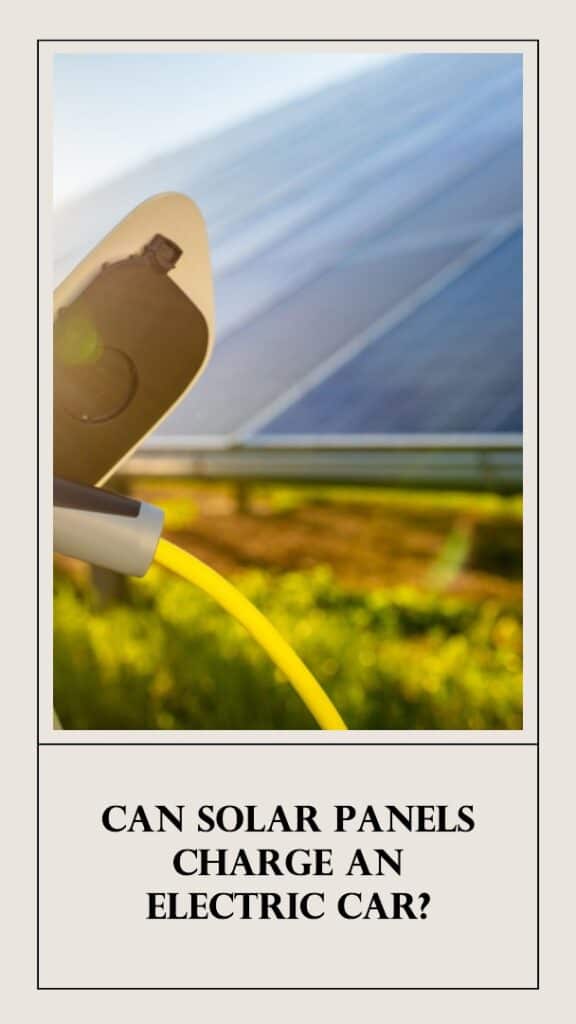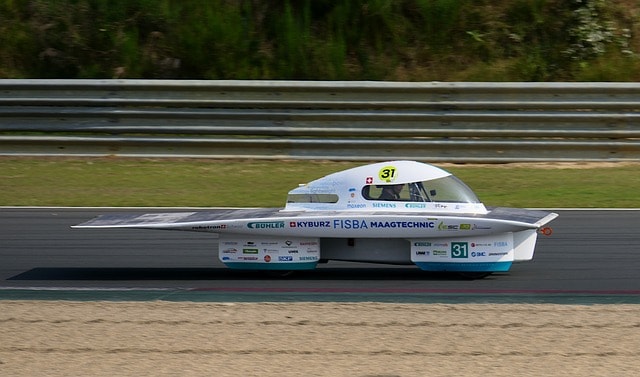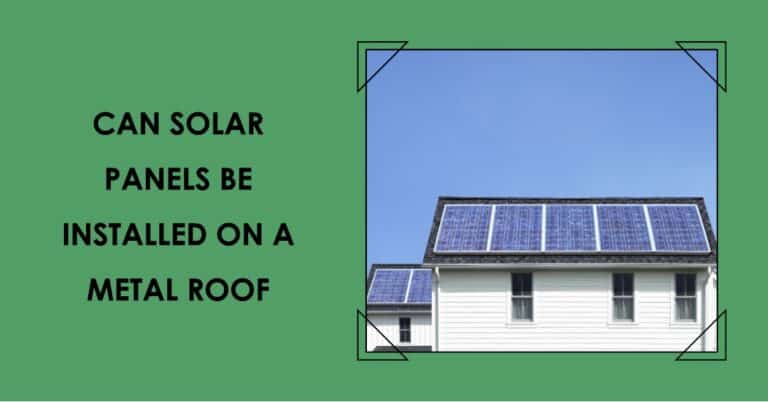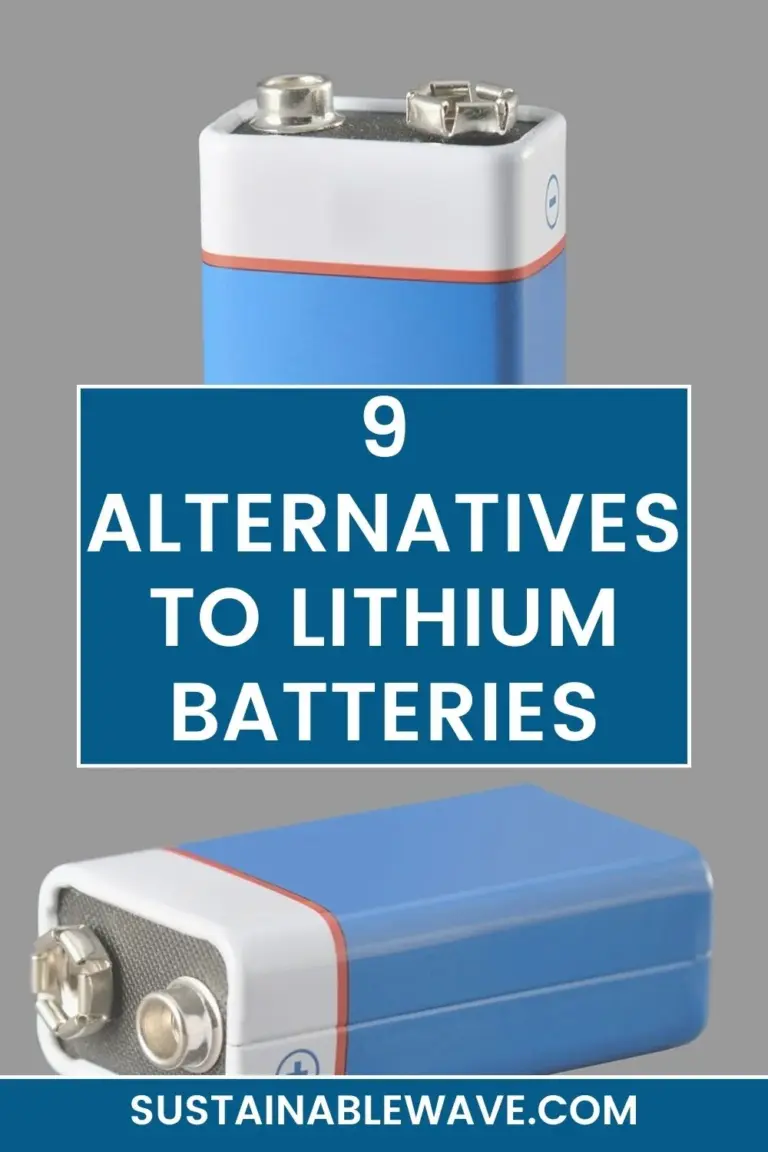The advent of electric vehicles (EVs) has undeniably marked a significant shift in the automotive industry. As we race towards a future less dependent on fossil fuels, solar power emerges as a promising prospect in EV charging. But the question remains: Can solar panels charge an electric car?
Absolutely, solar panels can charge an electric car. They convert sunlight into electricity, which can be used directly for charging during the day or stored in a home battery system for later use.
In this comprehensive guide, we’ll explore this query in depth. We’ll talk about the science behind solar power, its potential in charging EVs, and how this combo could reshape our future. So buckle up for an electrifying journey ahead!
The Science Behind Solar Panels

Before we delve deeper, let’s understand the science behind solar panels, also known as photovoltaic cells.
The Magic of Photovoltaics
Photovoltaic cells work by harnessing sunlight and converting it into electricity.
These cells are made up of semiconductive materials, like silicon, that absorb sunlight and kick off a process called the photovoltaic effect.
This effect produces a flow of electrons—electricity in its raw form.
The Power of Solar Energy
Solar energy is an abundant, renewable resource.
The sun produces an astronomical amount of energy, and solar panels merely tap into a fraction of it.
A standard solar panel can produce around 250-350 watts of power, although this can vary based on the panel’s efficiency and exposure to sunlight.
Can Solar Panels Charge an Electric Car?
But there’s a lot more to it than meets the eye.
Let’s delve a bit deeper into this topic.
The Mechanism of Solar Charging for EVs
When sunlight hits your solar panels, they convert this light into DC (Direct Current) electricity.
This DC power is then converted into AC (Alternating Current) by an inverter, making it usable for your home and EV.
Charging an electric car with solar energy involves two methods. You could directly channel the energy generated by your solar panels to your EV during the day.
Alternatively, you can store the energy in a home battery system and use it to power your EV as needed, regardless of whether the sun is shining or not.
Factors Affecting Solar Charging of EVs
The efficiency of solar charging for EVs depends on several factors, including the power of your solar panels, the size of your home battery, the amount of sunlight exposure, and the energy requirements of your EV.
For instance, if your EV requires 10 kWh for a full charge and your solar panel system can generate 30 kWh on a sunny day, you can comfortably power up your EV while still having enough power for your home. It’s all about striking a balance.
The Perks and Pitfalls of Solar Charging for EVs
Harnessing solar power to charge electric cars is a fascinating concept.
However, like any technology, it has its advantages and disadvantages.
Advantages of Solar Charging for EVs
- Sustainable and Eco-friendly: Charging your EV with solar power reduces your reliance on grid electricity, much of which is still generated from fossil fuels. This shift significantly lessens your carbon footprint, contributing to a more sustainable future.
- Cost-effective: After the initial investment in solar panels and setup, the energy produced is essentially free. Over time, this can result in significant savings on your energy bills. Plus, with the falling costs of solar installations and various federal and state incentives, the ROI period is reducing.
- Energy Independence: With solar panels, you create your own power station, reducing reliance on the grid. This can be particularly beneficial during power outages or in areas with unstable electricity supplies.
- Increased Property Value: Homes equipped with solar panel systems often have higher property values compared to those without. As more people recognize the benefits of solar energy, this trend is likely to continue.
- Convenience: With a solar panel system installed at home, you can conveniently charge your EV anytime. No more waiting in line at public charging stations or planning your day around your car’s charging schedule.
Disadvantages of Solar Charging for EVs
- High upfront costs: The initial cost of purchasing and installing solar panels can be significant, potentially creating a financial hurdle for some people. Although these costs can be offset by long-term energy savings and government incentives, the initial investment may still be daunting.
- Dependence on the weather: Solar panels require sunlight to generate electricity. Weather conditions, location, and time of year can compromise their efficiency. For instance, cloudy or rainy days, winter months, or living in less sunny regions can decrease power production.
- Energy storage: Unless you have a battery storage system, the excess energy produced by your solar panels during the day will go unused. Battery storage systems, while improving, can still be expensive and have their own limitations.
- Maintenance and Replacement: While generally low maintenance, solar panels may need occasional cleaning and inspection to ensure optimal function. Also, over time, the efficiency of solar panels can decrease, necessitating replacements.
- Installation Constraints: Not all homes are suitable for solar panel installations. Factors like roof size, angle, and shading can impact a solar system’s effectiveness. Zoning restrictions or homeowners association rules may also pose challenges in some areas.

How to Use Solar Power to Charge an Electric Car
Here’s a simple step-by-step guide on how to use solar power to charge an electric car:
- Invest in Solar Panels: The first step is to invest in a solar panel system. A professional installer can help you determine the best setup for your needs, considering factors like your average electricity usage, your electric vehicle’s power needs, and the amount of sunlight your home receives.
- Install a Home Energy Storage System: While not a necessity, a home battery storage system allows you to store excess energy produced by your solar panels. This energy can be used to charge your electric vehicle overnight or during periods of low sunlight.
- Set Up an Electric Vehicle Charging Station: You’ll need a home charging station to power your electric vehicle. Level 2 chargers, which are more efficient than standard wall outlets, are recommended.
- Connect Your Solar Panels to the Charger: Once your solar panels are installed and your home charging station is set up, connect the two systems. Your solar installer and electric vehicle charger provider can assist with this step.
- Charge Your Vehicle: During sunny hours, your solar panels will produce electricity that can be used to charge your EV directly. If you have a home battery, you can also charge your car with stored solar power whenever needed.
How Long Does It Take To Charge An EV Using Solar?
One of the most common questions that arise when considering the viability of solar power for charging electric vehicles is, “How long does it take to charge an EV using solar?”
On average, a typical home solar panel setup can fully charge an EV in about 8 to 12 hours. However, this duration can vary significantly based on the factors mentioned earlier.
In summary, charging an EV with solar power isn’t a quick process. However, with careful planning and smart utilization of resources, you can ensure that your EV is fully charged and ready to go when you need it.
Plus, you’ll be driving on the sun’s power, which is both environmentally friendly and cost-effective.
FAQs about Solar Panels and Electric Cars
Q: How Much Solar Power Do I Need to Charge My EV? The amount of solar power needed depends on your EV’s energy requirements. On average, a 5 kW solar panel system should be sufficient to power your car and home.
Q: Are Solar Panels Worth It for EV Owners? The worthiness of solar panels depends on several factors like your location (sunlight exposure), EV usage, and energy costs. However, in the long run, they can provide substantial savings and environmental benefits.
Q: Can I Install Solar Panels Myself? While possible, it’s recommended to have a professional install solar panels. This ensures they are installed correctly and safely, optimizing their efficiency.
Q: Can an EV Run Solely on Solar Power? An EV cannot run solely on solar power due to limitations in solar technology and the car’s design. However, solar energy can complement an EV’s battery power.
Q: Do Solar Panels Require Maintenance? Solar panels require minimal maintenance. Regular cleaning and an occasional check for damages should keep them in good shape.
The Future of Solar Energy and Electric Cars

Solar energy holds incredible promise for powering our homes and electric vehicles.
While the question “Can solar panels charge an electric car?” can be answered with a yes, the complexity and efficiency of this solution depend on many factors.
Regardless, the fusion of solar power and electric vehicles signals a bright and sustainable future.
As technology evolves, we can only expect this synergy to become more refined, efficient, and commonplace.
Sources
- How Do Solar Panels Work? – Richard Komp
- Charging Your EV With Solar Energy
- What is the Solar Car ‘Aptera’?
- Can Solar Panels Charge Electric Cars?
- Solar Panels: Are They Worth It?
I’m Thomas, the owner of SustainableWave. Passionately promoting a sustainable planet. With experience in various eco-roles, I’ll share green tips, sustainability hacks, and personal eco-journeys on my blog.






